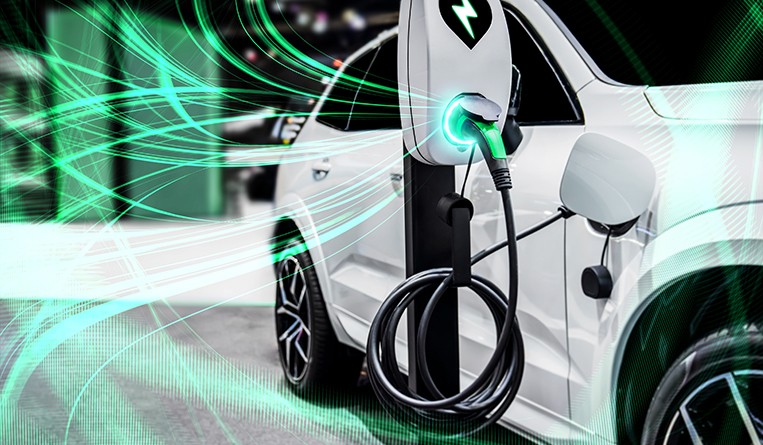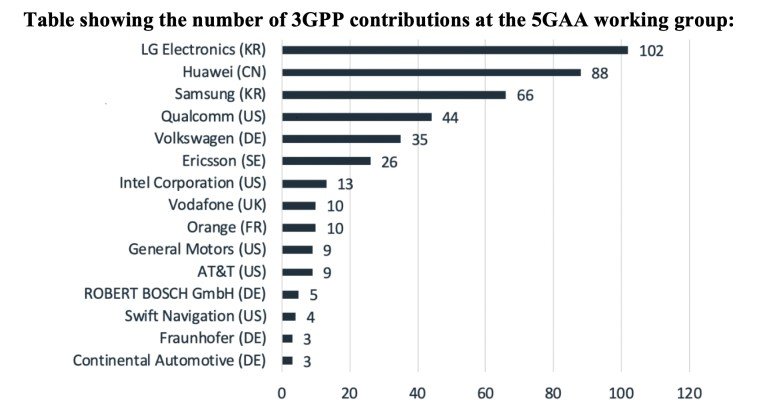SEP licensing in the automotive industry: A closer look
30 April 2024

A standard essential patent (SEP) is a patent that is necessary for the implementation of a technical standard. As the automotive industry is evolving in the direction of increased connectivity, technology from the telecom industry is finding its way into automotive vehicles. The need for vehicle-to-vehicle (V2V) connectivity and connectivity between vehicles and their environment (V2X) is rising, and thus the importance of SEPs in the automotive industry is growing.
For instance, a car manufacturing company needs technologies like GPS, Bluetooth, and Wi-Fi, and each of these technologies are protected by patents, which belong to different companies. If a car manufacturer uses them, it would have to pay for each patent in every country in which it wants to sell the car. Thus, patent pools come into the picture. However, over multiple jurisdictions, royalty calculations can become too complicated and expansive.
Recently, the Supreme Court of the United Kingdom ruled that instead of negotiating separate licenses for each country, car companies can get one global license that covers the whole world. This is expected to encourage companies to focus more on innovation rather than being involved in unnecessary licensing processes in each country where they wish to commercialize their product.
Basic principles for automotive SEP licensing
The automotive industry is complex, as thousands of parts and components are involved in a vehicle. In the current mature system, the prevalent business custom in the automotive industry is to adopt a vertical licensing model; that is, automotive enterprises usually contract with their upper-level suppliers to resolve intellectual property license issues related to the supplied parts and components.
The principle of fair, reasonable and don-discriminatory (FRAND)
“Fair, reasonable and non-discriminatory” is a licensing principle recognized by worldwide standard-setting organizations (SSOs), also known as the FRAND principle.
The fair and reasonable principle means SEP licensing should follow the principle of fair licensing, which means it should be fair to both the inventor and the public. The amount of royalties should be maintained within a reasonable range so as to ensure the technical standards can be widely used and promote sustainable development of the automobile industry.
The principle of “non-discriminatory” means that the SEP owner cannot differentiate on similar or substantially identical terms while granting a license. If it does so, a reasonable explanation should be provided.
The principle of entitlement to obtain licenses (“license to all”)
According to SEP policy, the SEP owner is obliged to license an implementer who wants to obtain a license (“license to all”) for its product or sevices, regardless of the implementer’s level in the industry chain. The SEP owner cannot charge different amounts to manufacturers of the same industry chain.
Licensing platforms
These are the platforms that help in obtaining licenses for companies that use patented technologies in their products. They act as a mediator between companies and patent owners. Hence, they allow car owners use the patented technologies without unnecessary hurdles. Some of the examples of licensing platforms are:
- Avanci: Avanci specializes in licensing patented technology for connected vehicles, particularly in the automotive industry. According to Avanci’s website, over 80 car brands with a total of 100 million connected vehicles have licenses from them, and more than 50 patent owners are part of the licensing program.
- IAM Market: IAM Market operates a platform for buying, selling and licensing patents across various technology sectors.
- Dolby Laboratories Licensing Corporation: It provides a licensing platform for patents related to audio and video technologies.
New working groups are being formed to handle standardization of the latest technological achievements for connected vehicles. One of the recent groups is the 5G Automotive Association (5GAA) a global, cross-industry organization of companies from both the automotive and telecommunications industries. The goal of the 5GAA is to develop end-to-end solutions for future mobility and transportation services to avoid incompatibility.

The Indian perspective
The concept of SEPs began in India in 2011, when Ericsson objected to the importation of handsets by Kingtech Electronics (India). Ericsson claimed that the handsets infringed several of their SEPs in AMR Codec (Adaptive Multi-Rate) technology. This was the initiation of SEP litigation in India.
Reasons for dispute
SEP owners prefer to license to big companies that make the end products rather than the companies that make smaller constituting parts, as it provides them greater value. This has led to disputes between SEP holders and the vehicle manufacturers/OEMs.
A few judgments of the recent past are as follows:
- Nokia v. Daimler. In the disputes between Nokia and Daimler, Daimler argued that Nokia’s licensing was not FRAND as Nokia refused to licence to Daimler’s suppliers. The case resulted in a confidential settlement between Nokia and Daimler.
- Unwired Planet v. Huawei.The decision of the Supreme Court of the United Kingdom in the long-running battle in Unwired Planet v. Huawei and Conversant v. Huawei and ZTE was handed down on August 26, 2020. It settles some of the issues around SEP licensing to enable access to telecommunications infrastructure, and should provide a more concrete legal basis to work from. The decision should assist the automotive sector as it moves toward a connected future by providing greater certainty around the SEP licensing process.
- Intex v. Ericsson.Intex Technologies, an Indian smartphone manufacturer, was involved in a legal dispute with Ericsson, a multinational telecommunications company, over royalty rates for using Ericsson’s SEPs. Intex argued that Ericsson was charging excessive royalty rates for its SEPs, which hindered fair competition and innovation in the Indian smartphone market. In response, Ericsson claimed that its royalty rates were reasonable and consistent with global industry standards. The High Court of Delhi issued guidance to harmonize SEP licensing practices in India with international standards. The court emphasized the importance of FRAND licensing terms for SEPs to promote innovation and competition in the Indian market. The case highlighted the significance of SEP licensing issues in the context of emerging markets like India and the need for clear guidelines to ensure fair licensing practices.
Recent updates on standard essential patents: A regulatory perspective
On April 27 2023, the European Commission presented a new draft regulation, SEP Regulation (COM (2023) 232 final), which introduced new rules for the licensing of standard essential patents in various sectors, including telecommunications and automotive.
- It has the aim of standardization across a wide range of technologies and sectors, and the creation and implementation of technical standards in 4G, IoT and automotive.
- It will ensure interoperability, and can increase competitiveness.
- If enacted, the regulation will cover all EU countries. It will not cover the UK, but the UK could adopt it if it wished.








